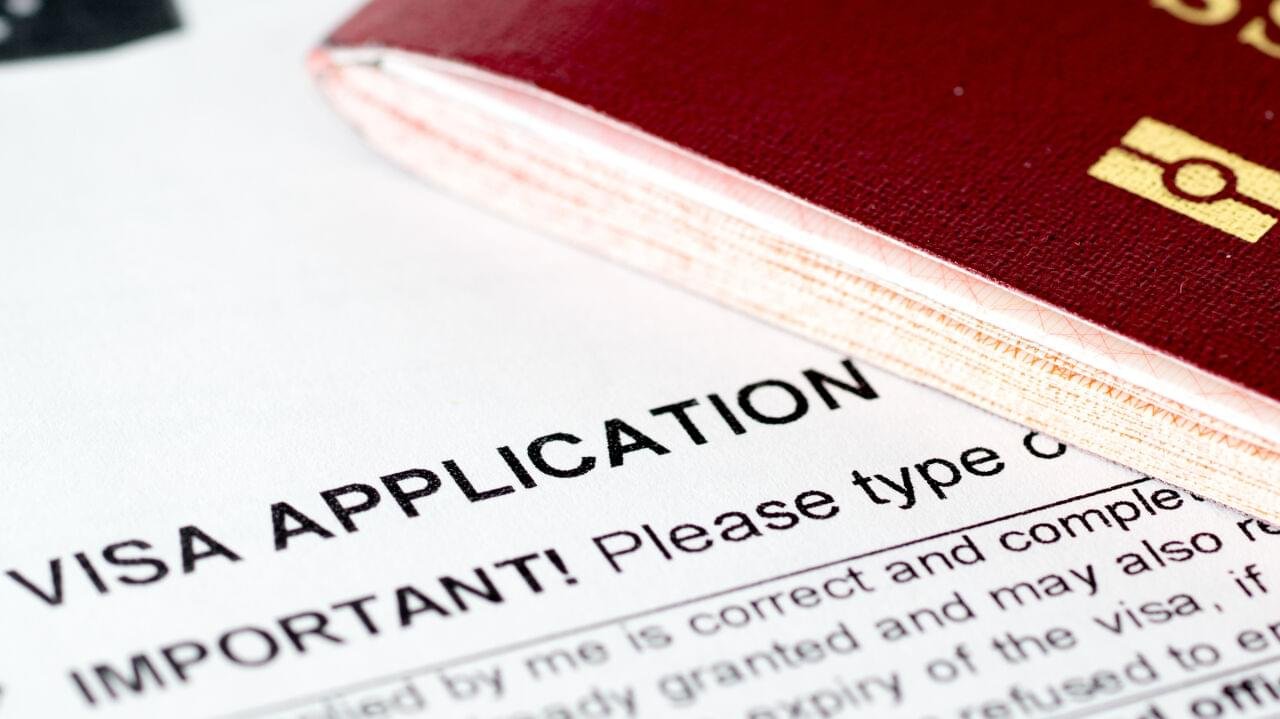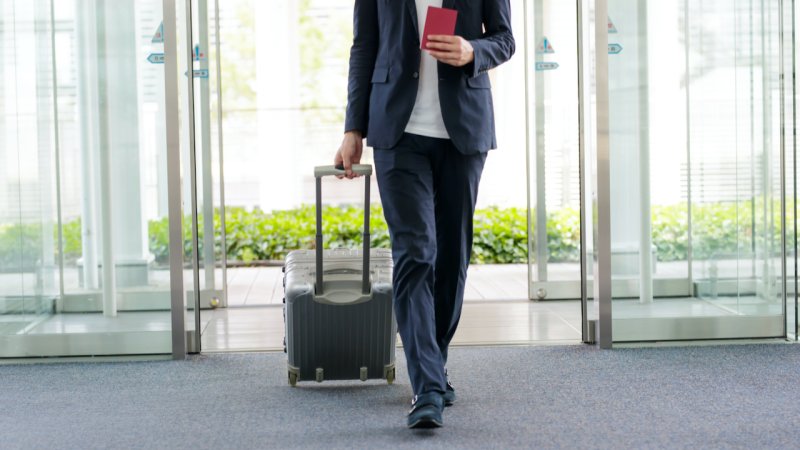
All citizens of so-called "third countries" (non-EU countries) need a visa to stay in Germany for more than three months or work here. That means only citizens of the EU countries and Australia, Israel, Japan, Canada, New Zealand, the Republic of Korea, Great Britain, Northern Ireland, and the US do not require a visa to enter Germany. The long-stay visa most foreign citizens need to obtain is called the "National Visa Type D".
Most people from third countries also require a visa for shorter visits. You can find out more about it in our chapter "Visitor Visa".
- The information on this page has been reviewed and verified by our consulting lawyer, Astrid Meyerhöfer.
The "National Visa Type D" is a visa for longer stays or stays until you obtain your other (main) residence permit, depending on your situation (for example: residence permit for students or employment). The visa essentially entitles you to enter Germany for a long-term stay, which you can only achieve by obtaining a corresponding residence permit.
Since the Immigration Office can often take several months to issue a residence permit, you should contact the relevant immigration authority immediately after entering Germany and applying for a residence permit.
The residence permit is the document that, depending on your visa type, allows you to work, study, undergo vocational training, etc. You can find detailed information about various types of visa here:
- Visa for skilled workers (§18a and §18b Residence Act)
- Student Visa (§16b Residence Act)
- Visa for Vocational Training (§16a Residence Act)
- Jobseeker visa (§20 Residence Act)
- Visa for searching for a spot in avocational training or university programme (§17 Residence Act)
- Visa for taking up work (§19 c para. 1 or §19 c para. 2 Residence Act)
- Visa for the recognition of foreign professional qualifications (§16d Residence Act)
- Blue Card EU (§18g Residence Act)
- Visa for researchers (§18d Residence Act)
- Self-employment visa (§21 Residence Act)
- Marriage visa
- Family Reunification
You must apply for your visa at the German embassy/consulate in your home country or - if that is not possible - in a neighbouring country or in the country in which you live. To do so, you need an appointment that you can book online on the website of the embassy responsible.
Each embassy or mission abroad has its own appointment arrangements. It is best to check out the website of the German embassy where you are applying for your visa. The Federal Foreign Office website has a list of German diplomatic missions abroad.
The embassy will also forward your application to the responsible Immigration Office in Germany, i.e. the local Immigration Office in the city where you wish to live. In principle, the Immigration Office must also approve your application.
Good to know: Some German consulates abroad work with external organisations to shorten processing times and make appointments quicker. This means that you do not always hand in your documents directly to a German consulate or embassy. These external bodies receive your documents and forward them to the responsible consulate.
Please note: Many fraudulent websites pose as third-party embassy services. So make sure about external service providers on the website of the consulate or embassy in your country of origin and avoid unreliable sources.
You can obtain the visa application form directly from the German embassy or consulate responsible. You can also download the form at auswaertiges-amt.de and print it out twice. In some countries, the application form is only accepted in the language used in the embassy there.
Please note: In most cases, you must submit all documents, some along with a certified translation into German. For instance, you don't have to have your passport translated, but often your birth certificate needs to be translated into German and certified. That means you need to find translation agencies in your country who can translate and certify documents. So, there are some additional costs to consider.
Check out the website of the embassy responsible for you beforehand to find out more.
For a national visa, you usually need at least the following documents:
- Visa application form - filled out and signed (2x)
- A valid passport
- Current biometric passport photos
- Proof of financing or a declaration of commitment. You can find out more about such a document in each chapter mentioned in the section "What is a national visa type D?" and our chapter "Declaration of Commitment for a National Visa".
- Other documents, depending on the type of your visa. Whether you need documents like an employment contract, proof of health insurance, or housing depends on the purpose of entry. In case of family reunification, for instance, you may have to prove custody of your child, or you may have to present the relevant employment contract in order to enter the country or obtain a visa as an employee. You can learn more in each chapter mentioned in the section "What is a type D national visa?" and chapter “Declaration of Commitment for National Visa”.
The processing fee for a national visa is €75 for adults and €37.50 for minors (under 18). You must pay it when applying. Important: You won't get it back even if your visa application is rejected.
Please note: There are exceptions to the costs for certain groups of people. You can find more about it (in German) in the German Foreign Office's leaflet.
In principle, you should expect up to 3 months, but it may take longer for some types of visas. That’s often the case, for instance, with family reunification. Such is often the case if the Federal Employment Agency also has to approve your visa application.
However, the visa process can be accelerated for certain visa categories. This applies, for example, to work-related visas such as the EU Blue Card, the skilled worker visa, the vocational training visa, etc. You can find out how to apply for an accelerated procedure on the Make-it-in-Germany.de.
The requirements of National Visa Type D differ depending on the purpose of your entry. You can learn more about the conditions in each specific chapter mentioned in the "What is a National Visa Type D?" section.
The duration of this visa differs depending on the purpose of your entry. You can learn more in the specific chapters mentioned in the "What is National Visa Type D?" section.
You can enter the country with a National Visa Type D and then apply for asylum in Germany. Whether your asylum application will be accepted depends on the circumstances in your home country. Often people who have a chance of asylum are not issued a visa at all. You can learn more about the asylum procedure in our chapters "Asylum procedure" and "Residence permit for refugees".
Please note: If a “declaration of commitment” has been submitted, you or the person who has made a declaration of commitment on your behalf must bear all of your costs (accommodation, food, medicine, etc.) until your asylum case is decided. If the application is rejected, that could include the costs of a possible deportation. You can learn more in our chapter "Declaration of commitment for a National Visa".
Please note: This regulation has nothing to do with the Asylum Seekers Benefits Act (AsylbLG). If a relative enters Germany through family reunification and applies for asylum independently based on personal grounds, the Asylum Seekers Benefits Act (AsylbLG) applies to them.
Citizens of Australia, Israel, Japan, Canada, New Zealand, Korea, Great Britain, Northern Ireland and the United States of America do not need to apply for a visa at the embassy in advance. They can also apply for it after they arrive in Germany.
Here you can find the German embassy in your country.
Here you can find all the information you need about the National Visa Type D ("D-Visa") for a long-term stay in Germany.




